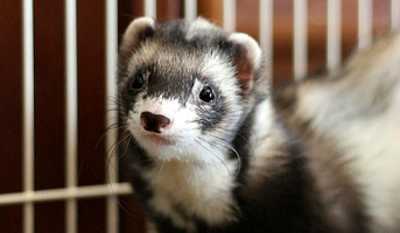Ferrets have been kept as domesticated pets for thousands of years. The belief is that they were initially tamed and trained for hunting rabbits. A ferret is a harmless form of the polecat with a lineage that is hard to trace. Although ferrets were practically unheard of as pets in the United States until the 1980’s, they are now considered the third most popular uncaged pet, following the cat and dog. Before bringing one of these energetic critters into the home, it is important to know everything about the ferret.
Misconceptions of the Ferret and What you Need to Know
There are a lot of beliefs about the ferret that are not true. The belief is that ferrets do not make good house pets because they are smelly and bite a lot. They are not aggressive and may occasional nip. The smell that some people speak of derives from a scent gland similar to that of a skunk. Their spray is much less potent, and the gland is often removed for domestic pets. As much as their lineage cannot be truly determined, they are not members of the rodent family, which is another misconception of the ferret. Ferrets can be trained and often used throughout history for a multitude of chores, which include protecting grain stores during WWII and as experimental subjects in biomedical research because their anatomical and physiological features are close to that of humans.
Ferret Care and Feeding
It is important to know that ferrets require a diet rich in protein and fat. They are carnivores with a digestive system that cannot get nutrition from plants. In fact, the best food for ferrets would be live prey such as small rodents. If live prey is not an option due to availability or by owner’s choice, a processed ferret food is a viable option. Cat food was once thought appropriate to feed ferrets, but it does not have quite the same nutritional value as food designed specifically for the ferret. It can work in a pinch, but a good ferret food is best. Healthy ferret food should contain meat, poultry, meat meal, or eggs. Byproducts are not a good source of protein and food with these ingredients should be avoided.
When learning everything about ferrets, it is important to know about housing your pet in a cage (not aquarium) of solid wood or wire. The recommendation is to avoid plastic cages since ferrets like to chew. The enclosure would have to be often checked for holes. Ferrets enjoy snuggling in soft, warm places, so provide old blankets, tee-shirts, and rugs along with a ferret hammock to make your ferret euphoric. A food and water supply, as well as a litter box, should be provided. Like the food, cat litter is not preferred but often used in a pinch.
Temperament of the Ferret
Ferrets love interaction. They can be trained and love to play with their human companions. Like cats, they will nap when they have nothing to do during the day but are more than happy to wake up for attention and affection. As you learn everything you need to know about ferrets, you will enjoy all their fun antics and pet companionship.
Photo credit: Thinkstock













[…] freely, makes them laugh, and has a cage for their bathroom habits and for sleeping. This is where ferrets come in. These little critters are famous for being entertaining and cuddly, but they are also a […]
[…] to ten million ferrets are being kept as pets in the US, making them the third most popular pet in the […]